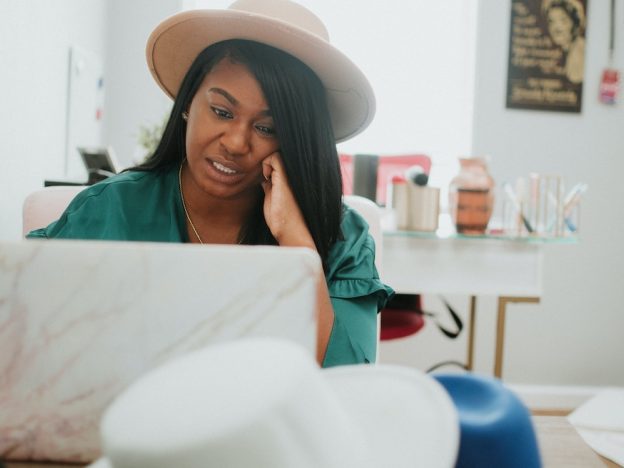Once you've decided to explore therapy, you might wonder what you will discuss in your sessions. It can feel like standing at the edge of an abyss, wondering where to start and what will happen once you jump in. This article will give you some insights and tips on where to begin with your therapy.
The foundation for open communication between you and your counsellor hinges on establishing trust. You must feel safe and secure in your sessions, as this emotional safety net means you can share your thoughts and feelings candidly. Building rapport is crucial in making the connection between you and your therapist robust and positive. This connection is vital and something I, as your counsellor, am well-versed in nurturing, as it is a linchpin for the effectiveness of your therapy.
In our sessions, I ensure to provide a safe and confidential space. You gradually build trust by being able to share your thoughts, emotions, and experiences without fear of judgment. This trust is the foundation upon which meaningful therapeutic work can occur. It means you can confront challenges and work towards positive change with the confidence that I am there to support and guide you.
Helpful topics to discuss in therapy
Here are some topics you may find helpful to talk about in your sessions:
- Setting goals
Setting clear therapy goals together helps guide our conversation and is also great for helping you track your progress. You and I will work together on them, regularly reviewing and checking in to ensure your counselling stays on track.
Having well-defined objectives can make the counselling process more productive and goal-oriented. Some examples of goals might be improving communication, learning coping mechanisms to change unhelpful behaviours, or gaining a better understanding of yourself. You can also identify and discuss your personal growth and well-being goals beyond therapy.
- Exploring emotions
Talking about your positive or negative feelings is crucial for self-awareness. Exploring your emotions might be something you are not used to but don't worry; as your counsellor, I will safely help with this.
Emotional self-awareness benefits your personal growth, and you might discuss tips and exercises to try at home to help you develop this. For example, you might be feeling a sense of loneliness and disconnection from people or feeling guilt for doing something wrong. Therapy will help you work out where these feelings come from and help you find ways to forgive yourself.
- Life events
There might be an experience or significant life event you've experienced that is affecting your mental health, causing you anxiety or depression. These may be life transitions, such as your child starting school or moving away to go to university; for example, therapy gives you the perfect space to share what has happened, which provides room to start processing and ultimately healing.
- Relationships
Discussing your relationships can be essential to understanding how they impact your wellbeing. There could be a fundamental relationship you want to explore with a family member, teenage child, or a friend, for example. It can also be helpful to explore how past relationships might still impact you now.
Therapy is a great practice ground for boundary setting. When you have healthy boundaries in your counselling relationship, it's easier to recognise and set them in your personal life. You can discuss how to put boundaries in place and their importance in healthy relationships.
- Coping strategies
You might discuss your developed coping strategies and then evaluate what works less well. You can find alternative and healthy ways of managing together. Self-care is vital to overall mental health, and you can discuss what you do to help yourself feel good and better understand what else you can do.
- Reflection and feedback
Reflecting on your progress in therapy helps you apply what you have learned. It's good to bounce ideas around about how you feel your counselling is going and to ask any questions you may have about your therapy.
Finding a therapist
There can be a perception that counselling is only for when you have a severe issue or specific problem that you must work through. There is a growing recognition of the effectiveness of talking things through with a neutral person to have the space to talk through whatever is on your mind. You can decide on the support you need before a problem feels overwhelming.
Finding the therapist that is a good fit for you is essential. It can feel daunting, but here are a couple of key tips on what to look for in a therapist:
- Ensure they are fully qualified and have the appropriate training and experience to help you with your needs.
- You should feel comfortable and safe with your therapist. They should be someone you can trust and who you feel understands you.
Feeling comfortable with your therapist and confident they can help you is essential. If you don't feel connected with a particular therapist, don't be afraid to try someone else – we won't mind, honestly!
Here are some additional tips for finding a therapist:
- Ask your friends, family, or doctor for recommendations.
- Look for therapists in your area who specialise in your specific needs, such as family issues, relationships, parenting tweens and teens, and neurodivergence (such as ADHD or autism).
Finding the right therapist can be challenging, but finding someone who is a good 'fit' for you and can help you with mental health and wellbeing is essential. You will feel more confident and prepared as you begin your therapy journey.
Don't hesitate to reach out if you're ready to take the first step towards personal growth and positive change. Once you've contacted me, I'll promptly reach out to schedule a convenient time to catch up by phone. Together, we can embark on self-discovery and empowerment through therapy.
I look forward to supporting you on this path.

